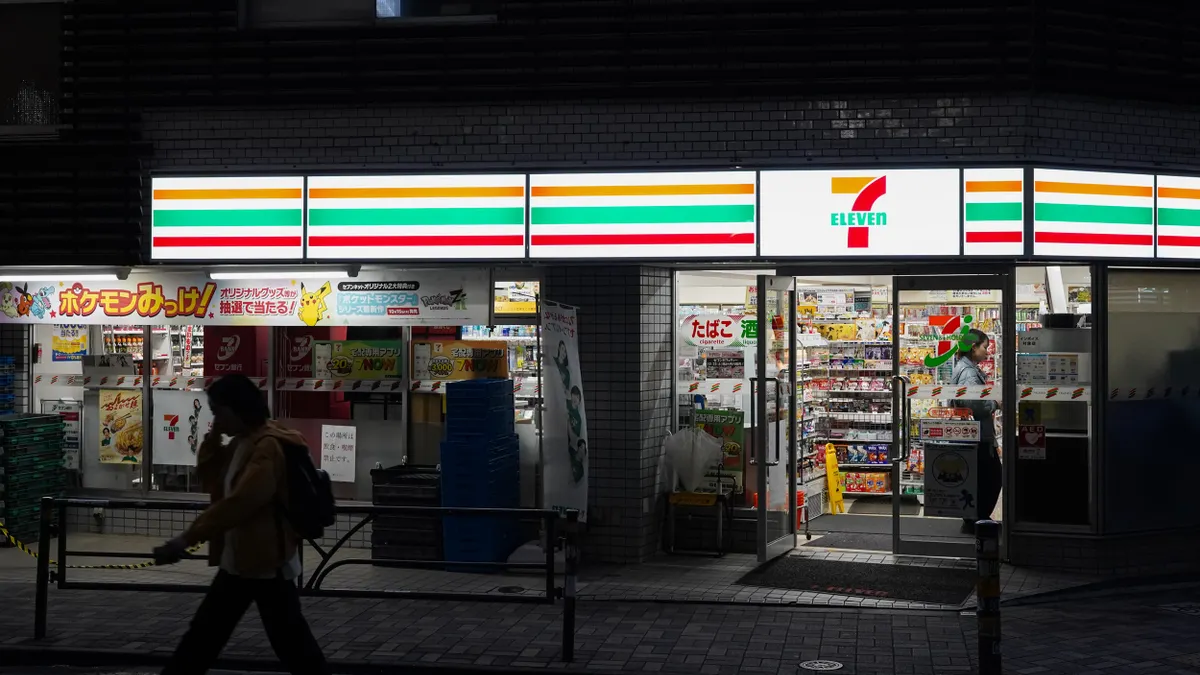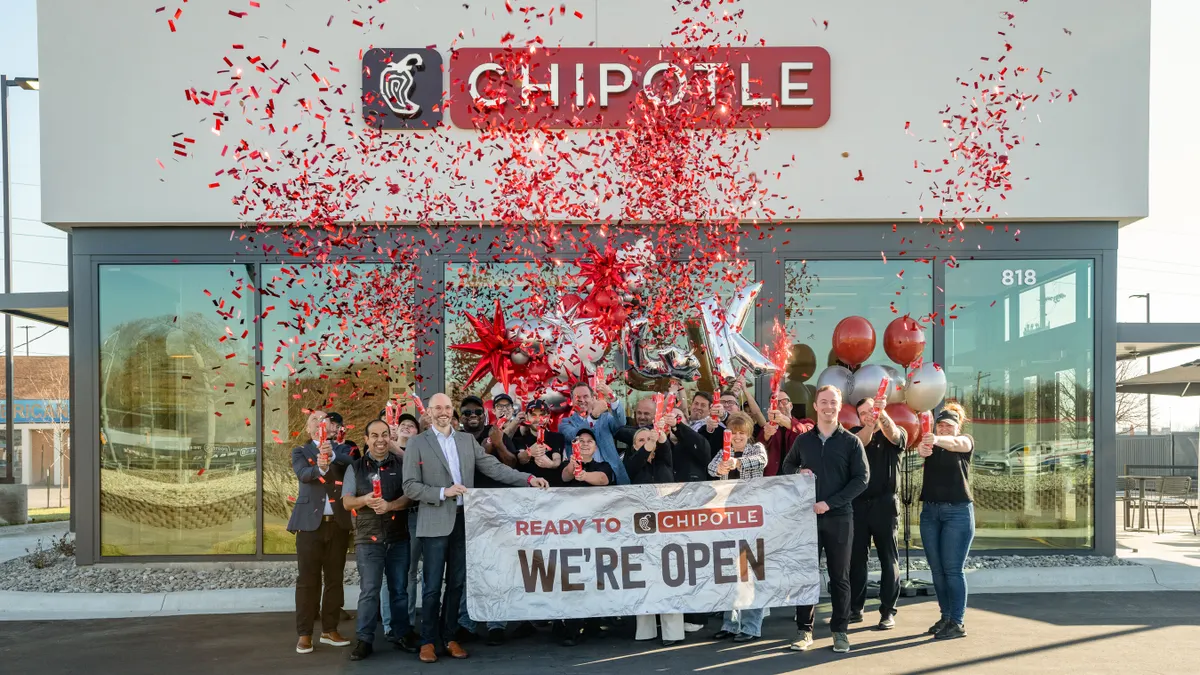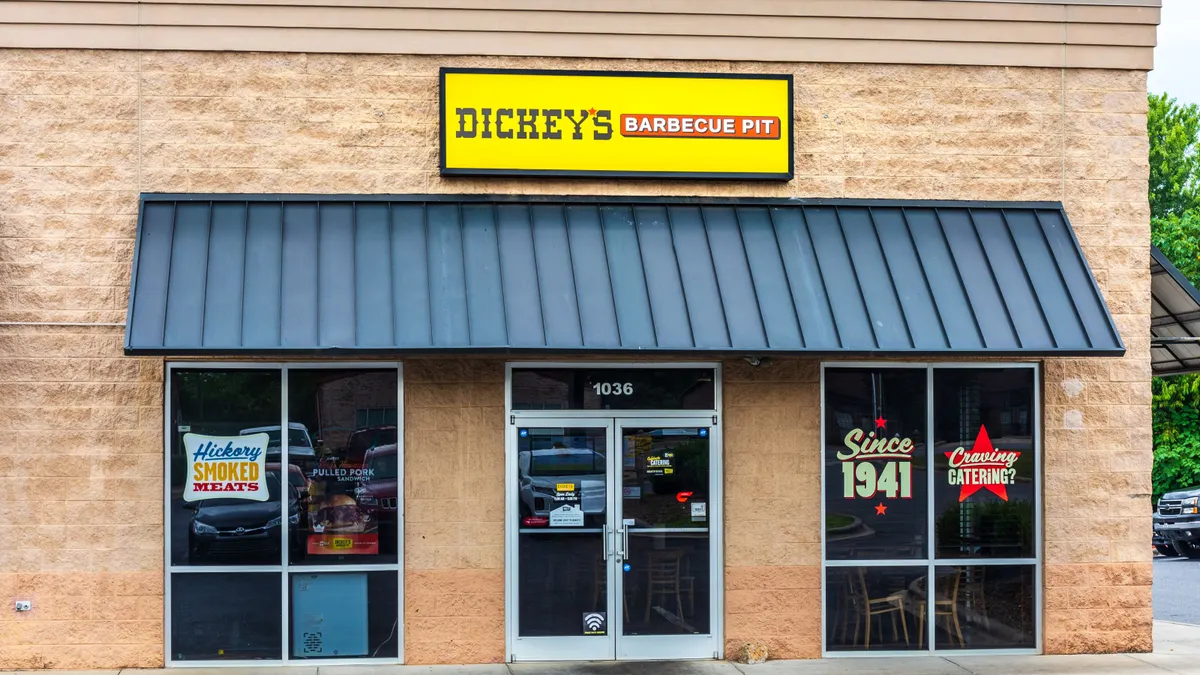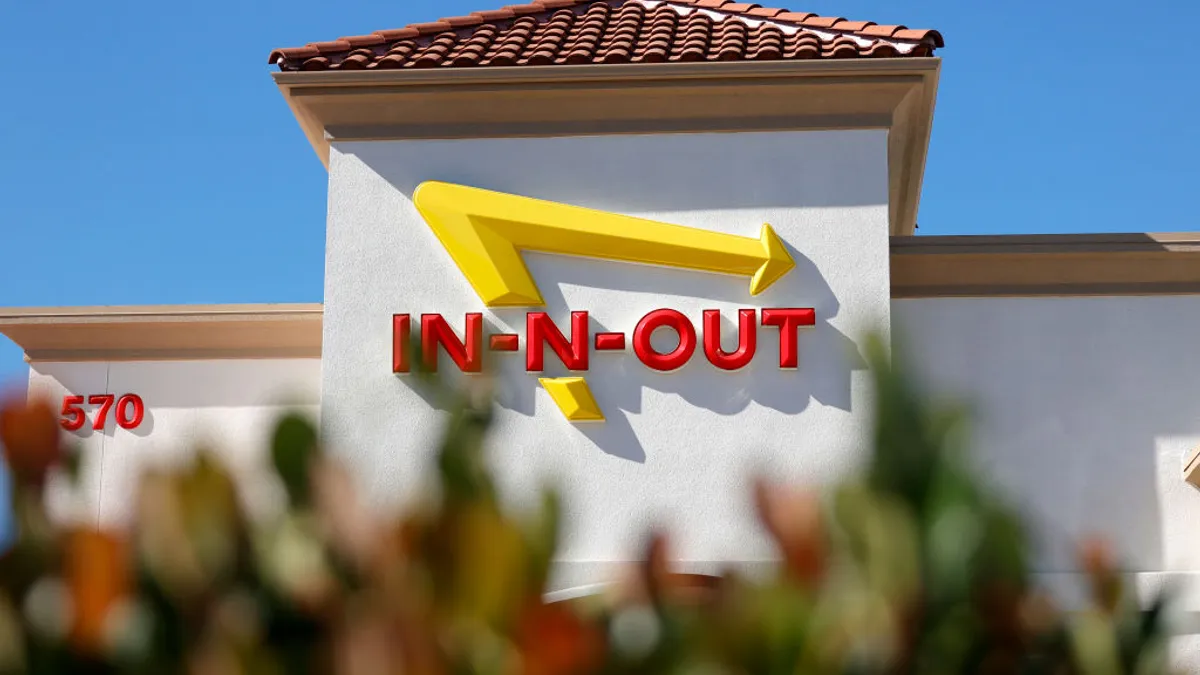While the restaurant industry is expected to employ 17 million people by 2030, according to the National Restaurant Association, finding these workers and keeping them in their positions is among the top challenges facing restaurants today.
"It's never been harder … attracting, retaining, developing and just finding great people," Shake Shack CEO Randy Garutti said during an ICR presentation last week.
But turnover rates are improving, according to the NRA.
"The turnover rate will go down as the economy slows," Hudson Riehle, SVP of the research & knowledge group for NRA, told Restaurant Dive during ICR. That data is already showing that while labor was cited as a top challenge, it was not as high as it was this time last year, he said.
Even so, restaurants are changing overall operations to boost efficiencies and reduce overall labor needs, providing stock options to managers and bolstering training and education.
"Research is pretty clear on why employees leave a foodservice operation," Riehle. "It generally has to do with the immediate supervision."
Keeping managers happy is a growing area of focus across many chains, especially since stable management can help with overall store metrics. Major restaurant chains have recently made investments to improve employee satisfaction: Taco Bell is testing a $100,000 manager salary in select markets this year, while Shake Shack is trialing a four-day work week for general managers.
But recruitment and retention needs to be looked at from a holistic standpoint, Riehle said. While compensation and the environment are important, so are benefits and flexibility, he said.
At the ICR Conference in Orlando, Florida, last week six brands spoke about their unique strategies to improve hourly and manager retention.
Shake Shack
The company is working to boost manager retention through a four-day work week, which has rolled out to a third of its shacks, Garutti said. While it is creating a competitive advantage for the chain, Garutti said it’s still being tested and isn't sure if it will expand everywhere.
The burger chain also is promoting its leaders from within and a majority of promotions went to women last year. Garutti said the company is developing new goals for diversity and inclusion. Garutti told investors in the past that a lack of available managers and leadership has been a growth challenge for Shake Shack, and attracting talent will be a continued focus as it reaches into new markets.
"In order to reach our development goals as we’re growing as fast as we are, we have a lot of great human beings and great leaders we need to find and develop," he said.
Chuy's
The casual dining chain is improving labor costs by reducing store volume. In 2019, it opened half as many stores as it did in the previous year, when it opened 11 stores, Chuy's CFO and VP Jon Howie said. This decreased the number of store managers going through training, which cut training costs.
The company is also shrinking the number of employees it has at its new locations on day one, Chuy's President and CEO Steve Hislop said during the presentation. The company used to hire 170 employees by opening day, but that didn’t make sense, especially because that meant two employees would cover the same station. The company now hires 140 employees for new restaurants and plans to reduce that further to better reflect what is more realistic for every day at Chuy's. This also decreases the amount of training needed for employees as well, Howie said.
For retention, Hislop said the company is looking into ways to determine the small things that keep employees where they are. For example, when he visited a Chuy's, an employee in the back was trying to find a place to plug in his phone, but there wasn’t one, which made Hislop think of adding a rack for people to charge their devices.
He said making sure that people do the same thing every day can also help them get better at that task and help with retention, he said.
Torchy's Tacos
Torchy's Tacos, which currently has about 70 units, plans to reach about 160 within the next three years. The fast casual chain is investing in its people strategy, including its hiring, training and development, Torchy's Tacos CEO GJ Hart told Restaurant Dive.
The chain offers a manager partner program, where general managers sign a contract and write a check to the company to be a partner for that restaurant, he said. These operators have a low base pay, but receive a percentage of the restaurant sales, creating a sort of internal franchise system to the corporate-owned stores. This program typically results in managers having access to income north of six-figures, Hart said.
For hourly team members, the company is placing certified trainers in each store to welcome new employees to ensure there is someone there to help that newcomer know exactly what they need to do.
"We find that people generally want to do the right thing," Hart said. "They just want to learn. We hire for attitudes and teach for skill," he said.
Macaroni Grill
For a legacy brand like Macaroni Grill that isn’t as flashy as some of the emerging restaurants, hiring and retention has been about figuring out how to keep the team focused, how to maintain a sense of pride and bring the team together, CEO Nishant Machado said.
Employees ranging from assistant manager to CEO can buy into an equity share program, Machado said, adding that offering this to assistant managers is unheard of in the industry, but thinks that it is valuable because these managers also add to the company’s value creation.
"At the end of the day, if you don't have buy-in from your managers … you're never going to get there," he said.
The company has seen a 98% participation rate in this program and has cut its turnover rate at the manager level to 50% last year, he said.
Kura Sushi
Kura Sushi's operations integrate technology and automation in the back of house, with robots prepping and cooking rice, as well as monitoring the sushi conveyor belts to make sure that the sushi being served is fresh, CEO and president Hajime "Jimmy" Uba said during an ICR presentation. Using these robots means the chain doesn’t need to hire a highly trained chef who specializes in sushi either.
"We recognize that this is one of the toughest labor markets the United States has seen in a very long time," Uba said. "We believe we are uniquely well positioned to weather this environment. Between automation and the simplicity of our operations, we're not reliant on highly-skilled labor and we’re not as reliant on as much labor period compared to our competitors."
For the human employees it does have, it’s improved retention and turnover rates during the last several years, he said. It links hourly employee evaluations with surveys that are provided during the customer checkout process. The company sees this as an effective way of measuring staff performance while also helping with retention. During fiscal year 2019, the company reduced employee turnover from 125% to 99%, Uba said.
For the management level, Kura Sushi has a 35% retention rate, which is below the industry average, Uba said. Offering stock options, which give managers a vested interest in the company, has helped retain employees.
The restaurant also assessed turnover rates based on size of store, and noticed its large stores tended to have rates as high as 116% while its smaller stores were at 45%.
"Given the importance of very high level operations and reducing onboarding and training costs and improving customer satisfaction, we’re going to be putting more smallers stores into our pipeline strategy," Uba said.
Denny's
The diner is rolling out new training tools and strategies that will improve operations and guest satisfaction, Denny's CEO John Miller said. Those tools include its new Ignite e-learning system and Delight and Make it Right, which is another e-learning platform focused on field training and reinforcement of processes, to help improve service scores. Its Pride Review Program is focused on assessments, messaging, coaching and continuously improving the consistency and execution of brand standards and new initiatives, he said.
In 2019, the company launched a Breakthrough Leadership Training program with Magic Johnson as well. This program provides creative and interactive employee curricula, leadership workshops, simulations, games, mobile learning and educational training videos.
Correction: An earlier version of this article misspelled the Kura Sushi CEO's name.



















